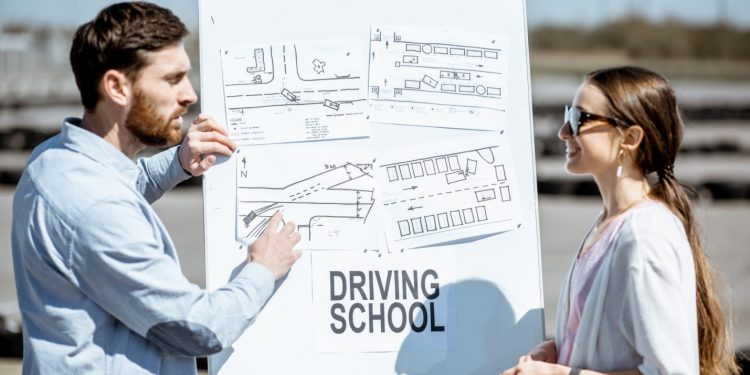5 to 6 million car accidents happen in the United States every year. Your odds of getting into a car accident, even a minor one, are fairly high.
New drivers are at a greater risk of car accidents because they don’t have the experience required for safe driving. Are you a brand new driver who’s ready to get onto the road?
We’re here with a few helpful driving tips for newbies that can help keep you and the people around you safe. Read on to learn more.
Study Traffic Rules
You’ll likely learn all about traffic rules and laws while you’re in driving classes, but make sure that you’re keeping up with your education over the years. Laws may change, especially if you move to a different state.
If you’re unsure about whether or not you’ve learned everything that you need to know, consider taking practice tests at home. These are also helpful if you’re still preparing for your real test.
Check out tests at https://dmvtest.autos/.
Always Watch the Road
All good drivers are defensive drivers. Defensive drivers pay close attention to the road and try to foresee potential problems before they happen. This keeps them, their passengers, and the drivers around them safe.
If you’re not paying close attention to the road in front of you, you may not notice when traffic starts to slow down due to a traffic jam, rush hour, or even an accident up ahead. It’s a good idea to pay attention to the cars that are several cars in front of you alongside the one right in front of you.
You also need to watch for pedestrians, animals, or other potential hazards. Always assume the worst of other people. That may seem pessimistic, but remember that not everyone is going to obey road rules.
It’s everyone’s responsibility to keep the road safe.
Avoid Backseat and Passenger Seat Distractions
So you’ve just started driving and you’re ready to drive your friends and family members around. Great! Be careful, though, if you don’t feel ready to focus on the road when there are distractions in your car.
Make sure that the other people in your car know that you need to focus on the road. Don’t ever turn around to look at them, even if they’re right beside you. It looks safe in movies, but in real life, it’s a huge hazard.
If your friends or family members are being disruptive, there’s nothing wrong with asking them to quiet down while you’re trying to focus. If they respect you, they’ll understand that you’re trying to keep them safe.
Don’t Eat and Drive
This is a tough one for many new drivers. You can change this as you adapt to driving, but at first, don’t ever eat while you’re on the road (especially if you’re on a busy highway).
Yes, you can eat a burrito or a handful of chips with one hand while the other hand is on the wheel, but this isn’t safe. Food is a distraction.
If you’re hungry while you’re on the road, pull over and eat a snack. It’s a good opportunity to stretch your legs and you’ll be keeping yourself safer. Anyway, can you truly enjoy your meal when you’re trying to eat it in a hurry in the car?
GPS Is Your Friend
Even if you know your city like the back of your hand, it’s different when you’re behind the wheel. Getting lost is easy for new drivers, even in small towns. You have so much to think about!
Many cars come with GPS tools or apps pre-installed that you can use with your smartphone (without having to hold your smartphone and put yourself at risk). Even older cars, however, can use external GPS.
Having GPS might seem distracting, but once you get used to it, it’s going to be a valuable safety tool. Some of them even warn you about speed changes and accidents coming up ahead.
Don’t ever feel embarrassed about using a GPS tool while you’re driving in a place that you “should” be familiar with. You’re keeping yourself safe!
Keep Important Documents On-Hand
Even with the best intentions, accidents happen. Many young adult and teen drivers think that nothing bad can happen to them if they’re good drivers, but this isn’t true. Everyone makes mistakes and other people’s mistakes aren’t always avoidable.
If you get into a car accident, you’re going to want your driver’s license or driving permit, your vehicle’s registration, and your insurance information. You’re also going to want to take photos of the accident.
This information will help you, the other driver, the police, and your insurance company. Put them somewhere nearby so you don’t have to go digging for them when you’re already stressed about the accident.
Avoid (or Practice For) Bad Driving Conditions
New drivers, unless they happened to take their tests or have their practice sessions in bad weather conditions, are often unprepared when those conditions arise. No matter where you live, you’re sure to encounter a dangerous driving condition at least once.
Do you live somewhere that gets a lot of snow? What about hurricanes? Do you live somewhere that has a tourist season that causes traffic to multiply?
These are all different types of unsafe conditions. It’s best to take public transportation or carpool with more experienced drivers in these situations.
You should learn how to drive under these conditions but do so with a trusted driver in the car. When it comes to heavy rain or snow, try to practice on back roads that don’t get a lot of traffic.
Keep These Tips for New Drivers in Mind
New drivers are always excited to get on the road, but they’re at a greater risk of experiencing (or causing) accidents. These tips for new drivers can keep you safe while you’re “learning the ropes” and adapting to your car.
For more helpful articles about the top trending topics, visit the rest of our site.













